Books
Media-Ready Feminism and Everyday Sexism (SUNY Press, March 2021)
Authors: Andrea L. Press & Francesca Tripodi
Feminism can reflect the cultural moment, especially as media appropriate and use feminist messaging and agenda to various ends. Yet media can also push boundaries, exposing audiences to ideas they may not be familiar with and advancing public acceptance of concepts once considered taboo. Moreover, audiences are far from passive recipients, especially in the digital age. In Media-Ready Feminism and Everyday Sexism, Andrea L. Press and Francesca Tripodi focus on how audiences across platforms not only consume but also create meanings—sometimes quite transgressive meanings—in engaging with media content. If television shows such as Game of Thrones and Jersey Shore and dating apps such as Tinder are sites of persistent everyday sexism, then so, too, are they sites of what Press and Tripodi call “media-ready feminism.” In developing a sociologically based conception of reception that encompasses media’s progressive potential, as well as the processes of domestication through which audiences and users revert to more limited cultural schemas, Press and Tripodi make a vital contribution to gender and media studies, and help to illuminate the complexity of our current moment.
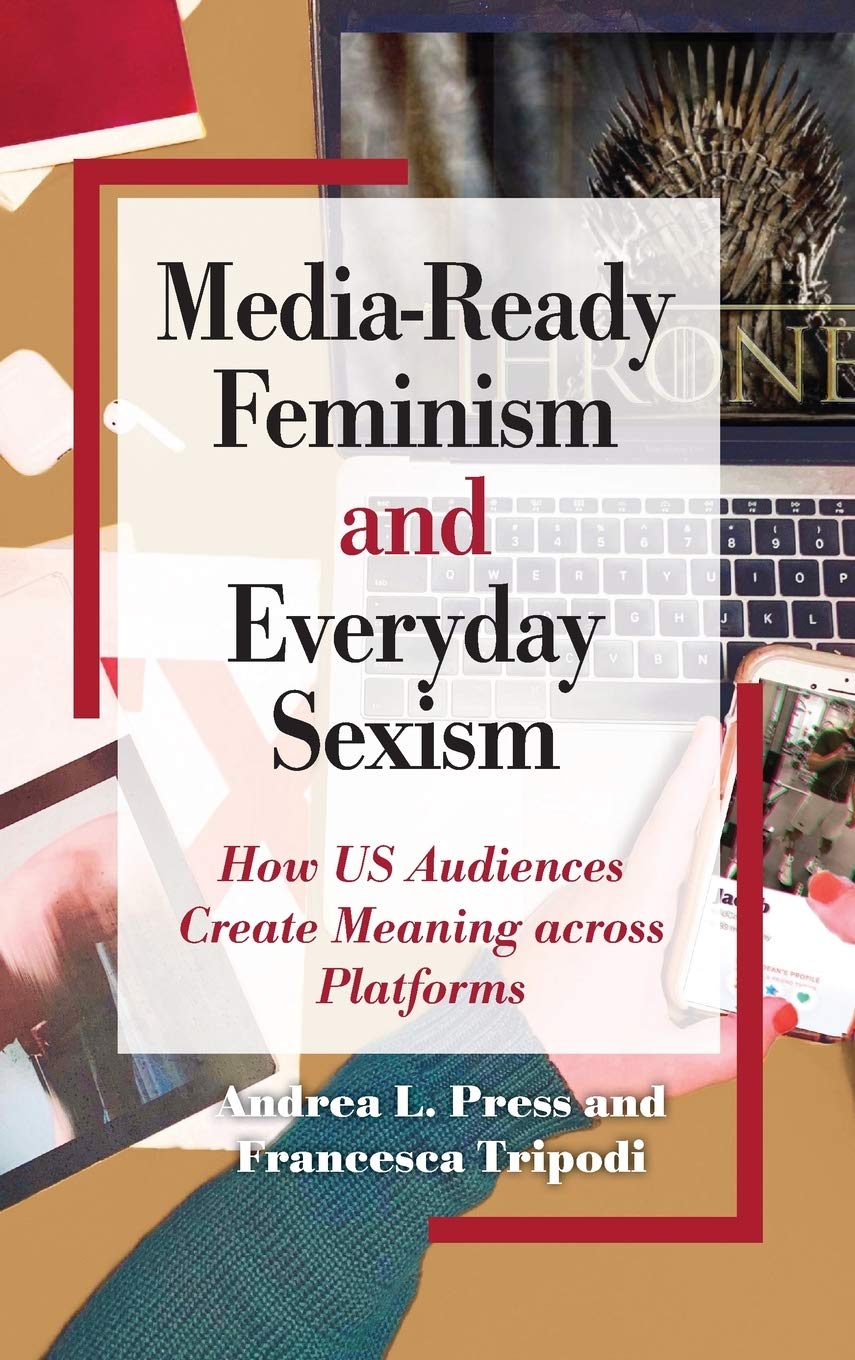
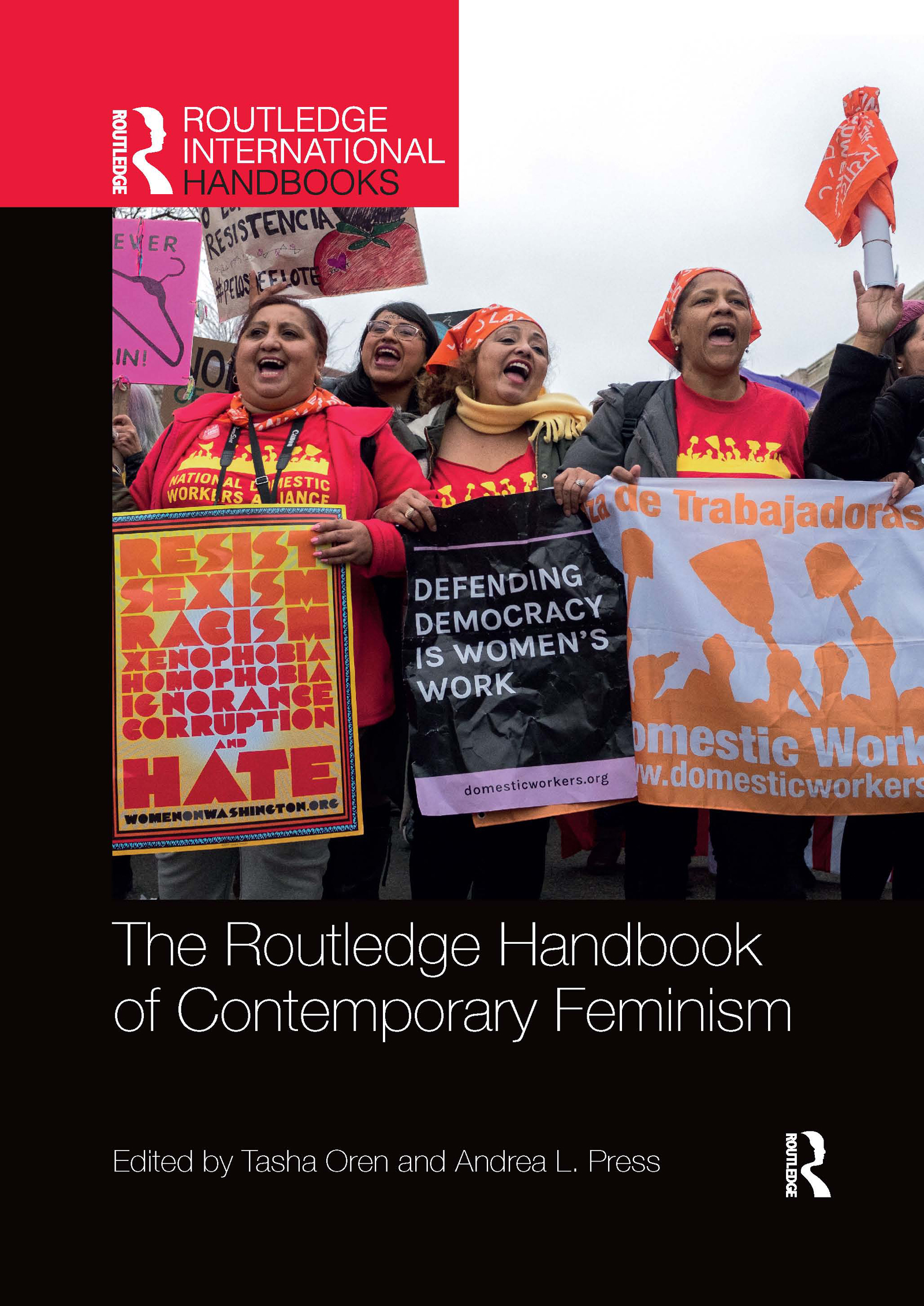
The Routledge Handbook of Contemporary Feminism (Routledge, December 2020)
Editors: Tasha Oren & Andrea L. Press
Feminism as a method, a movement, a critique, and an identity has been the subject of debates, contestations and revisions in recent years, yet contemporary global developments and political upheavals have again refocused feminism’s collective force. What is feminism now? How do scholars and activists employ contemporary feminism? What feminist traditions endure? Which are no longer relevant in addressing contemporary global conditions?
In this interdisciplinary collection, scholars reflect on how contemporary feminism has shaped their thinking and their field as they interrogate its uses, limits, and reinventions. Organized as a set of questions over definition, everyday life, critical intervention, and political activism, the Handbook takes on a broad set of issues and points of view to consider what feminism is today and what current forces shape its future development. It also includes an extended conversation among major feminist thinkers about the future of feminist scholarship and activism.
The scholars gathered here address a wide variety of topics and contexts: activism from post-Soviet collectives to the Arab spring, to the #MeToo movement, sexual harassment, feminist art, film and digital culture, education, technology, policy, sexual practices and gender identity. Indispensable for scholars undergraduate and postgraduate students in women, gender, and sexuality, the collection offers a multidimensional picture of the diversity and utility of feminist thought in an age of multiple uncertainties.
The New Feminist Television Studies (Lambert Academic Publishing, January 2019)
Editors: Mary Beth Haralovich & Andrea L. Press
The articles reproduced in this book all suggest how the production culture of television engages, constrains, and challenges postfeminism. What happens when postfeminism and “after feminism” have to come up against these powerful compulsions of the entertainment industry? That is the issue these articles address. We offer these pieces as some of the best examples of current feminist television studies.
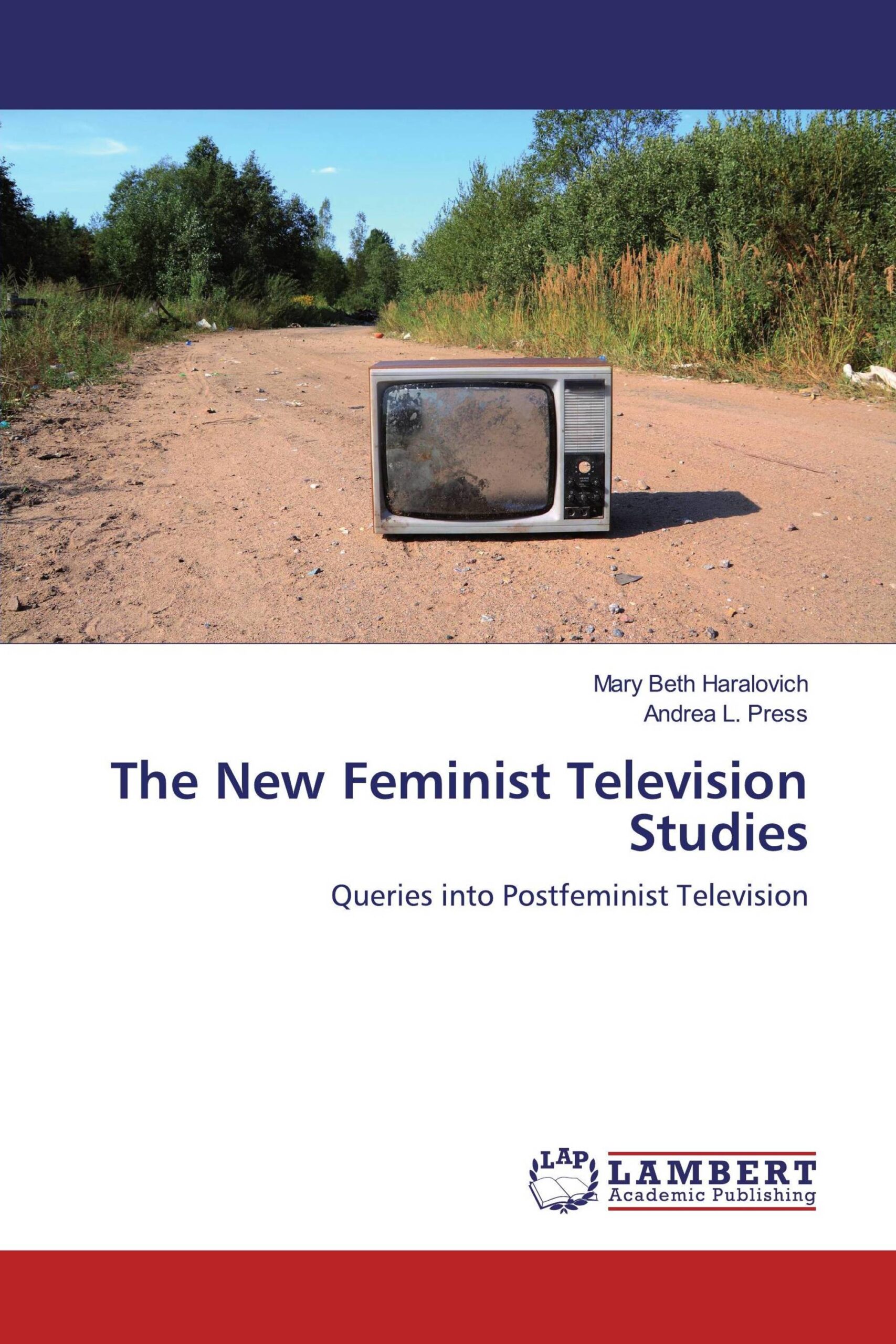
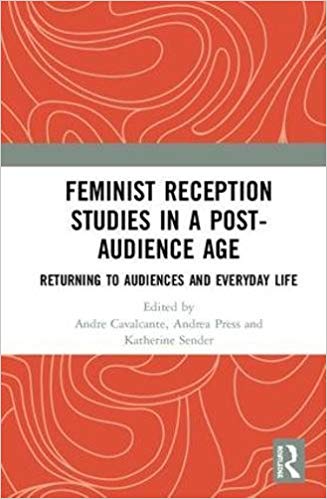
Feminist Reception Studies In a Post-Audience Age (Routledge, February 2018)
Editors: Andre Cavalcante, Andrea L. Press, & Katherine Sender
This book makes an important return to reception studies at an exciting juncture of media distribution and modes of consumption. The editors’ introduction contextualizes this new work within a long history of feminist approaches to audience research, and argues that new media forms require new methods of research that remain invested in questions of gender, sexuality, and power. The contributions are rooted in the dynamics of everyday life and present innovative approaches to media and audiences. These include investigating online contexts, transnational flows of media images, and new possibilities of self-representation and distribution. Collectively, this work provides a robust theoretical and methodological framework for understanding media reception from a feminist communication and media studies perspective. The scholars included are in the vanguard of contemporary thinking about media audiences and users of technology in what some call the ‘post-audience’ age.
Media and Class: TV, Film, and Digital Culture (Routledge, March 2016)
Editors: June Deery & Andrea L. Press
Although the idea of class is again becoming politically and culturally charged, the relationship between media and class remains understudied. This diverse collection draws together prominent and emerging media scholars to offer readers a much-needed orientation within the wider categories of media, class, and politics in Britain, America, and beyond. Case studies address media representations and media participation in a variety of platforms, with attention to contemporary culture: from celetoids to selfies, Downton Abbey to Duck Dynasty, and royals to reality TV. These scholarly but accessible accounts draw on both theory and empirical research to demonstrate how different media navigate and negotiate, caricature and essentialize, or contain and regulate class.
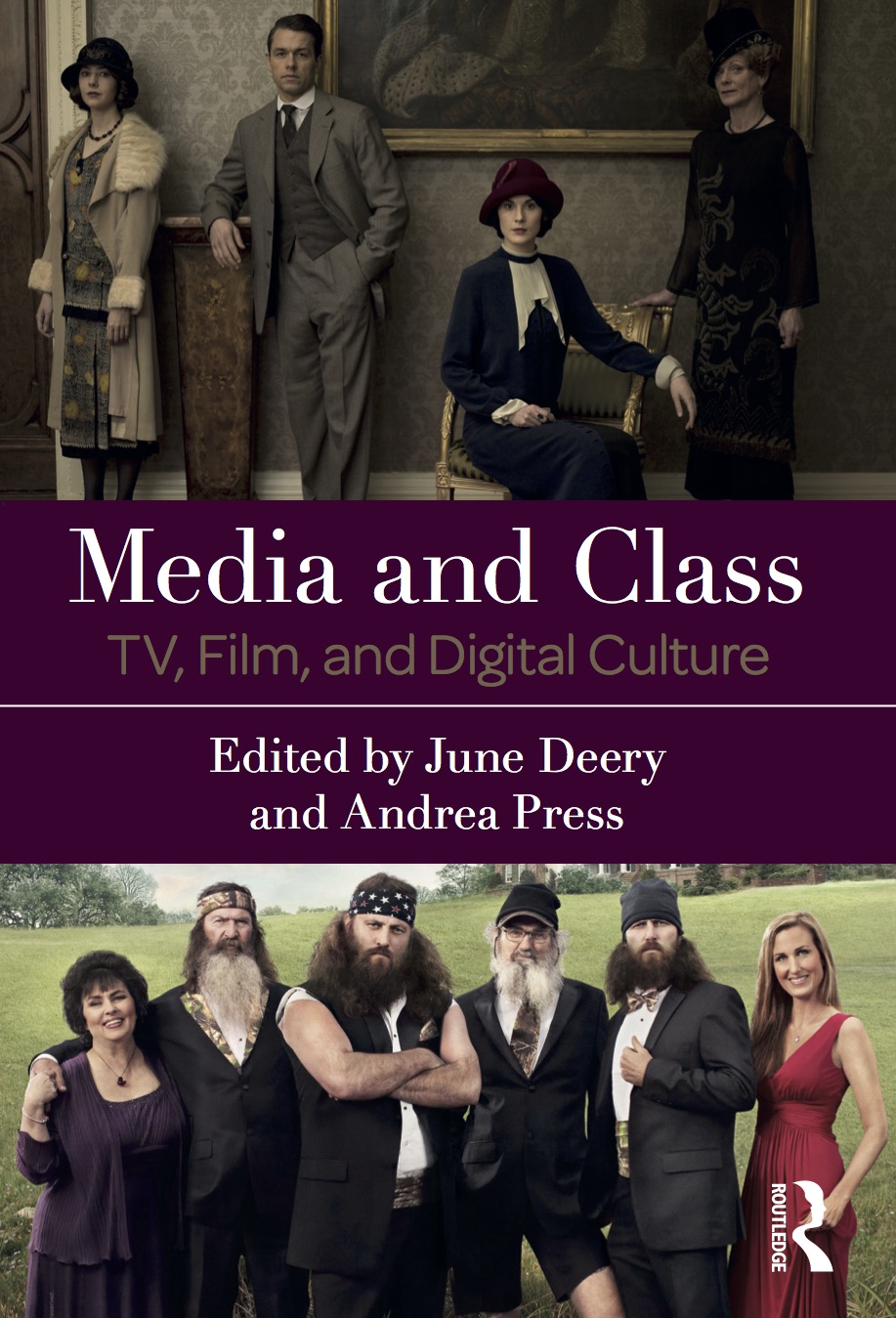
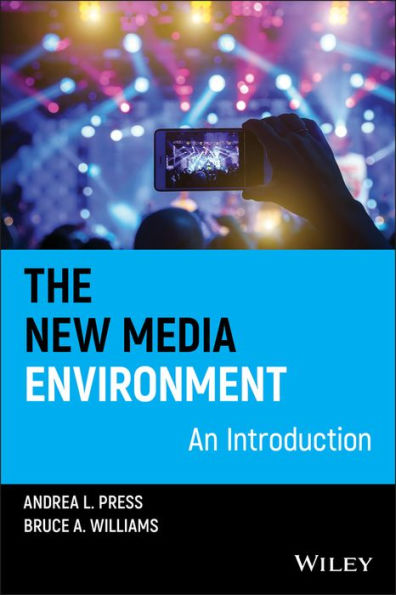
The New Media Environment (Wiley, July 2010)
Authors: Andrea L. Press & Bruce A. Williams
- Explores how recent changes in our media affect the way we watch older media like television, movies, and radio, and offer up rich new interactive media, like video games and the internet
- The perfect introduction to the field of media studies
- Chronicles the recent dramatic changes in communication technologies, arguing that most of life itself is now experienced as 'mediated'
- Discusses the development of cable and satellite television, VCRs, DVDs, the internet and personal computers
- Emphasizes the broader political, social, and economic context within which these important new technologies have developed
- Now translated into Egyptian and Arabic.
Speaking of Abortion (University of Chicago Press, April 1999)
Authors: Andrea L. Press & Elizabeth R. Cole
Over four years, Andrea Press and Elizabeth Cole watched television with women, visiting city houses, suburban subdivisions, modern condominiums, and public housing projects. They found that television depicts abortion as a problem for the poor and the working classes, and that viewers invariably referred to and abided by class when discussing abortion. Speaking of Abortion is an invaluable resource that allows us to hear how ordinary women discuss one of America's most volatile issues.
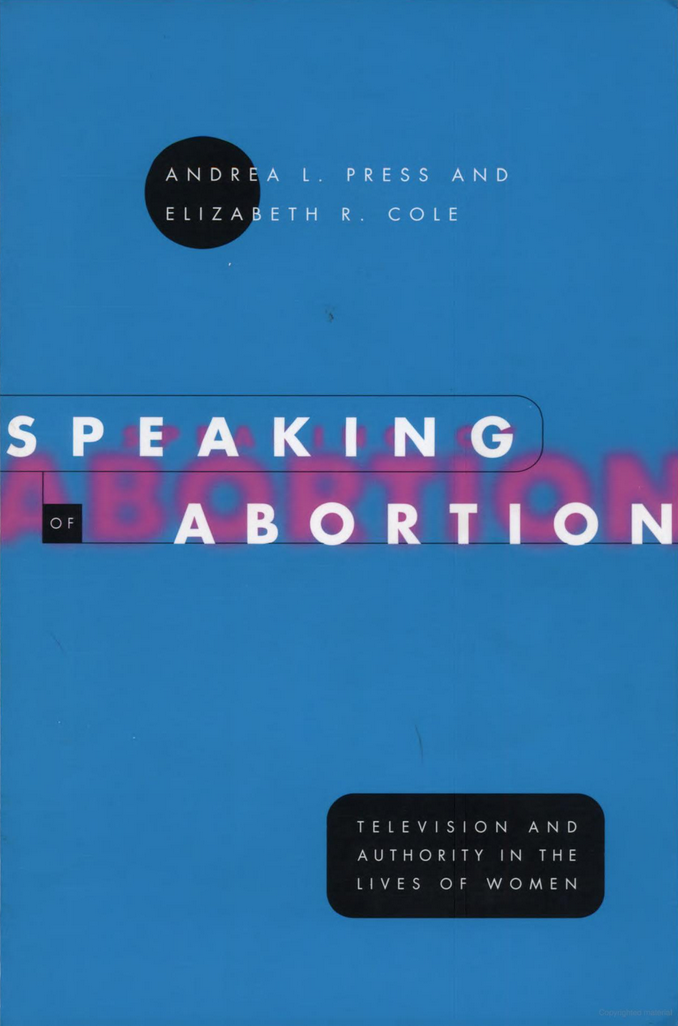
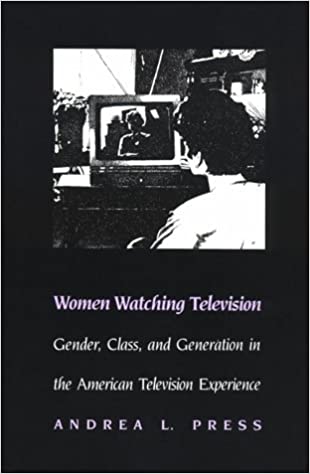
Women Watching Television (University of Pennsylvania Press, March 1991)
Author: Andrea L. Press
Women's inclinations to identify with television characters varies with their assessment of the realism of these characters and their social world.
"A valuable book. . . . By looking at television through the eyes of female viewers of different classes and ages, Press has provided an interesting analysis of a medium that no one can afford to ignore or dismiss."—Women's Review of Books
"Andrea L. Press's book Women Watching Television is a sophisticated sociological study of class and generational differences in women's responses to television. . . . Press's book represents a careful and thorough piece of research, where findings are enriched by the broad, interdisciplinary bases and wide background reading for the research."—Signs
Nominated for the Jessie Bernard Award of the American Sociological Association.